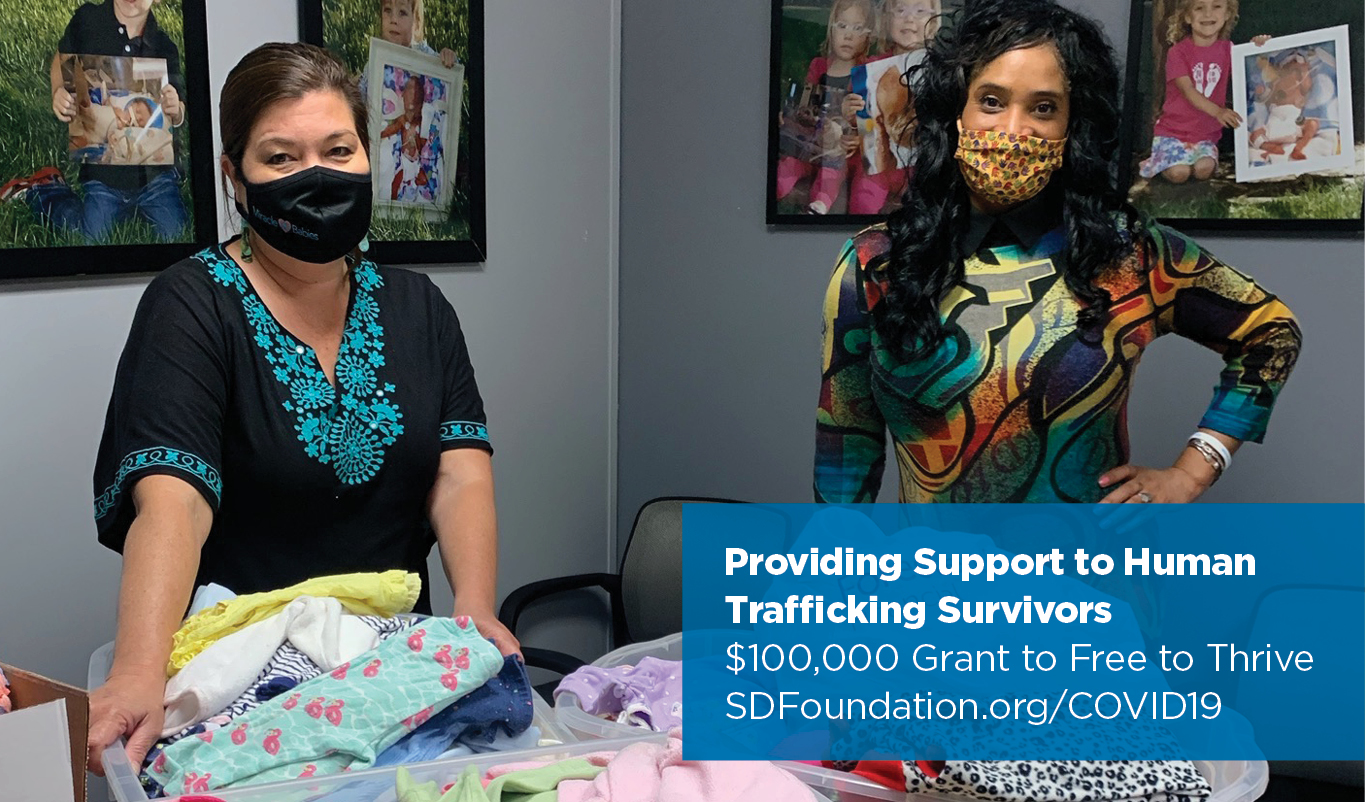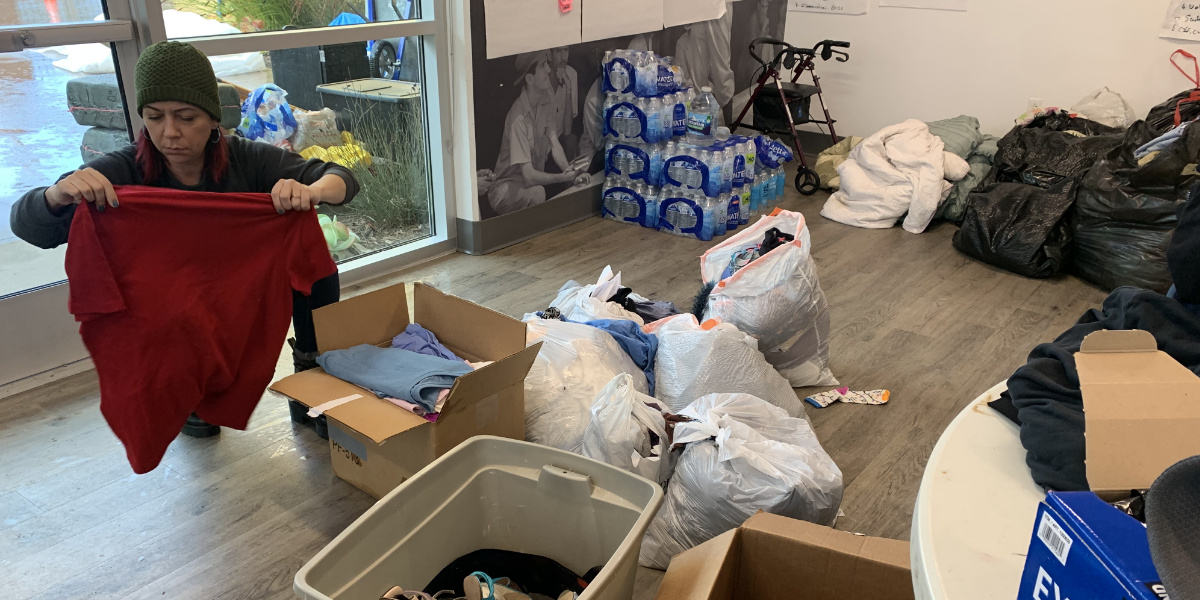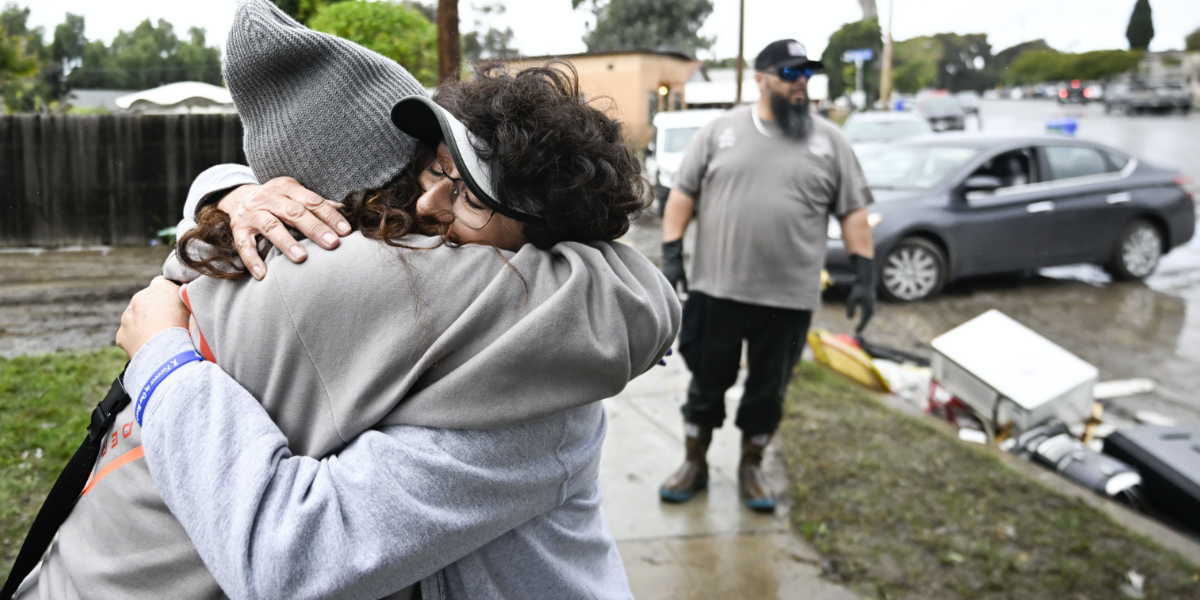“Thank you for everything. I feel cared about a lot.”
That comment from a client of Free to Thrive, a nonprofit working to empower survivors of human trafficking, says it all in expressing the sentiments of dozens of women facing crises many of us could not begin to imagine.
The COVID-19 pandemic has exacerbated the situation. Thanks to a $100,000 grant from the San Diego COVID-19 Community Response Fund, however, Free to Thrive has been able to provide nearly 80 clients with an array of support throughout the pandemic.
Free to Thrive offered these services through a new program titled STEER, an acronym for Survivors of Trafficking Essential Emergency Resources) aimed at ensuring clients are receiving the support they need throughout the ongoing health crisis. Aid ranges from food, housing and clothing to mental health and financial assistance. Grant funding also enabled the organization to continue providing legal services to clients in areas of need increased by the pandemic, including 14 restraining orders, 29 child custody cases and two landlord/tenant disputes.
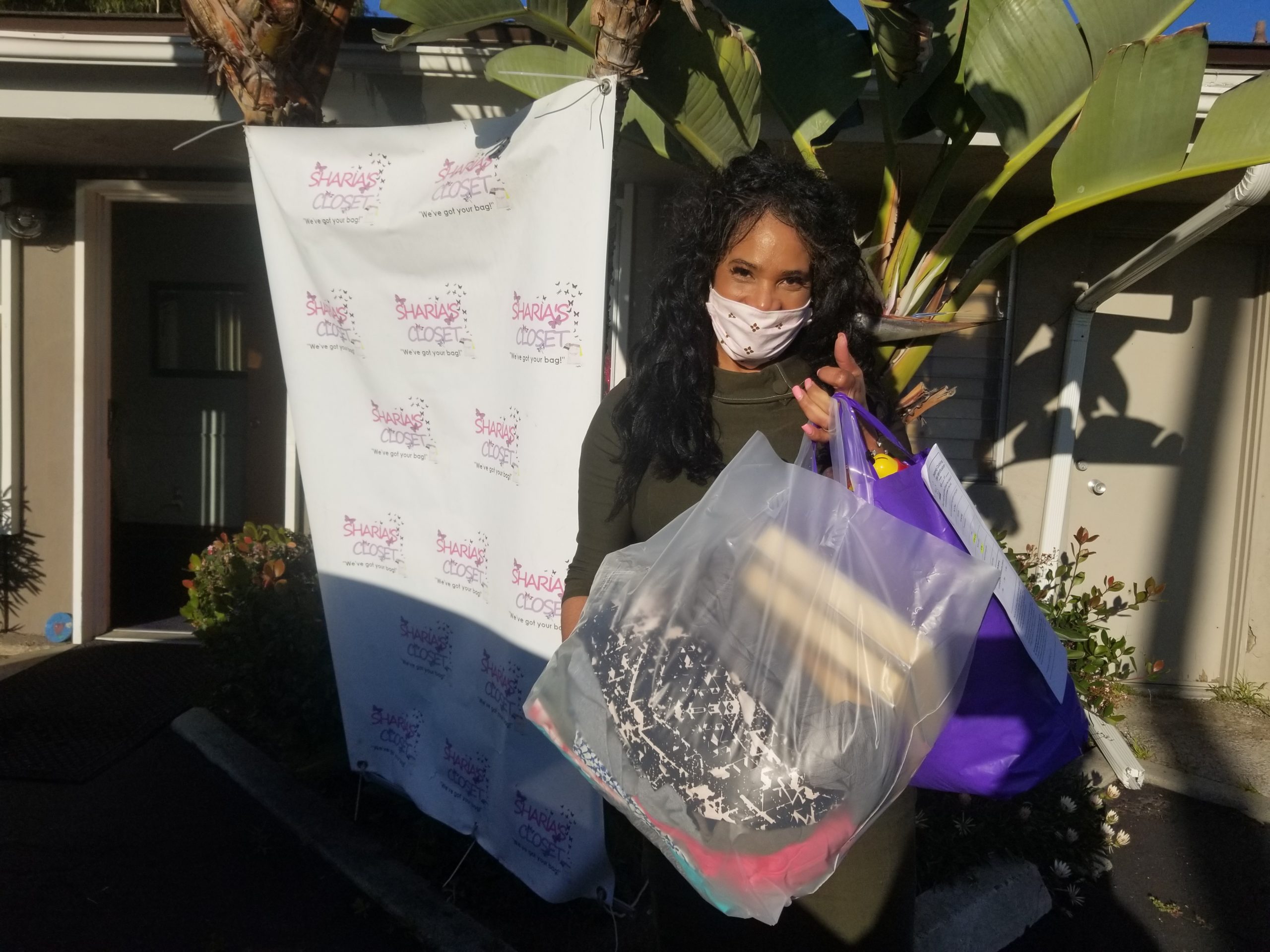
“Survivors of human trafficking are extremely vulnerable, and all those vulnerabilities – hunger, homelessness, physical and mental abuse – have been exacerbated by the COVID crisis,” said Jamie Beck, Free to Thrive’s president and managing attorney. “We’re determined to continue serving our clients any way we can and the support from the Community Response Fund has been so critical in keeping us going. But this crisis is not over. We’re hoping the community will continue to step up in these challenging times.”
Indeed, a recent study noted COVID-19 has exacerbated inequities on vulnerable populations, which are bearing the brunt of the health impacts. Youth, in particular, are at heightened risk of exploitation for a variety of factors, including spending more time online because of school closures.
Free to Thrive was founded less than five years ago to empower survivors of human trafficking and free them from exploitation while helping victims to thrive through a holistic approach that includes legal and support services and working with other community-based organizations, law enforcement and government agencies, law firms and more.
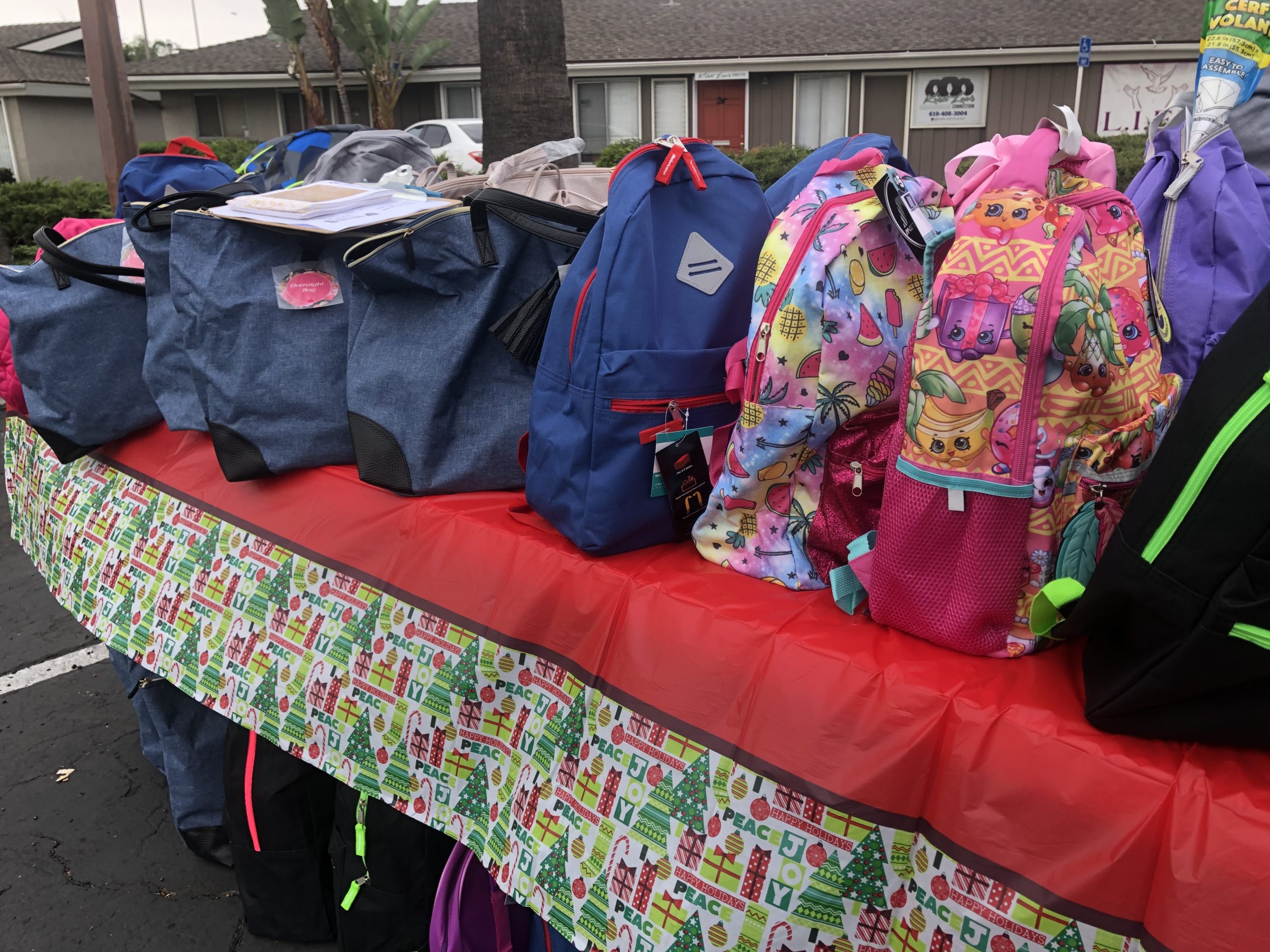
Most Free to Thrive clients are American-born victims of sex trafficking, but their experiences run the gamut. Some were trafficked as minors, some as adults, and victims range in age from the teens to the mid-60s. 86 percent of clients have experienced domestic violence and 72 percent of clients have children.
Free to Thrive implemented its new STEER program by contacting current and former clients to identify any challenges they were facing during this crisis. A basic needs assessment included a questionnaire inquiring about physical health, food security, housing, employment, mental health, and financial status.
The STEER program was a life saver for Leslie, who was facing eviction and homelessness. Free to Thrive attorneys, Beck said, negotiated a mutually agreeable solution that involved giving the client additional time to find a new place and ensuring that she avoided a formal eviction, while also helping her find safe and affordable housing.

“I want to say that you have motivated me and inspired me in ways that I will not or cannot articulate right now because I am in the midst of huge change,” Leslie said. “I am excited that I have Free to Thrive to speak to, give me courage and show me that there is a better way outside of enslavement. Two years ago I moved to California. I ran away from being trafficked. I was blessed to be alive. I want to thank Free to Thrive from the bottom of my heart, from my head all the way to my toes for giving me the courage, determination and desire to put one foot in front of the other to not repeat and not be led by fear or circumstance. God bless you all. You are wonderful, marvelous, selfless. Thank you.” You can help by donating to the San Diego COVID-19 Community Response Fund today.
